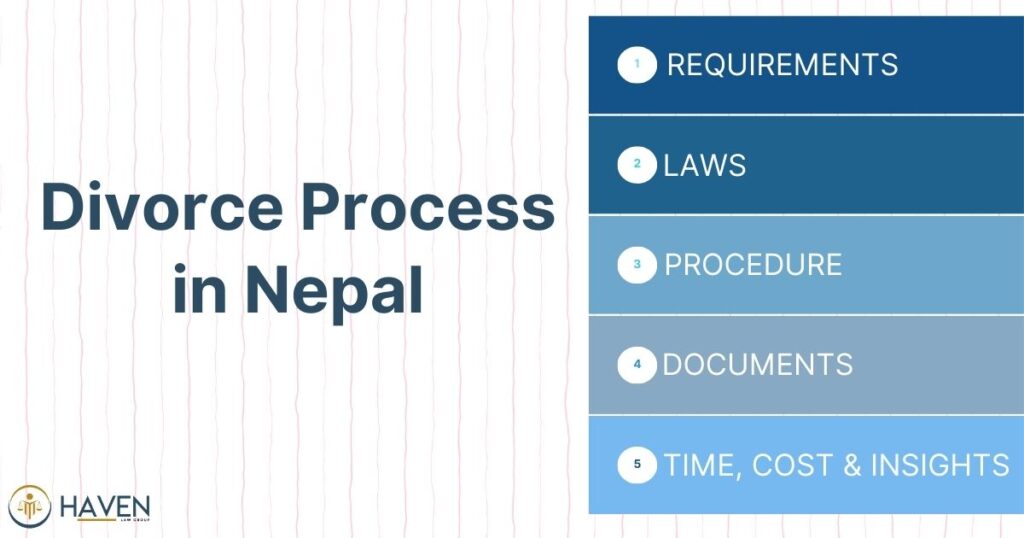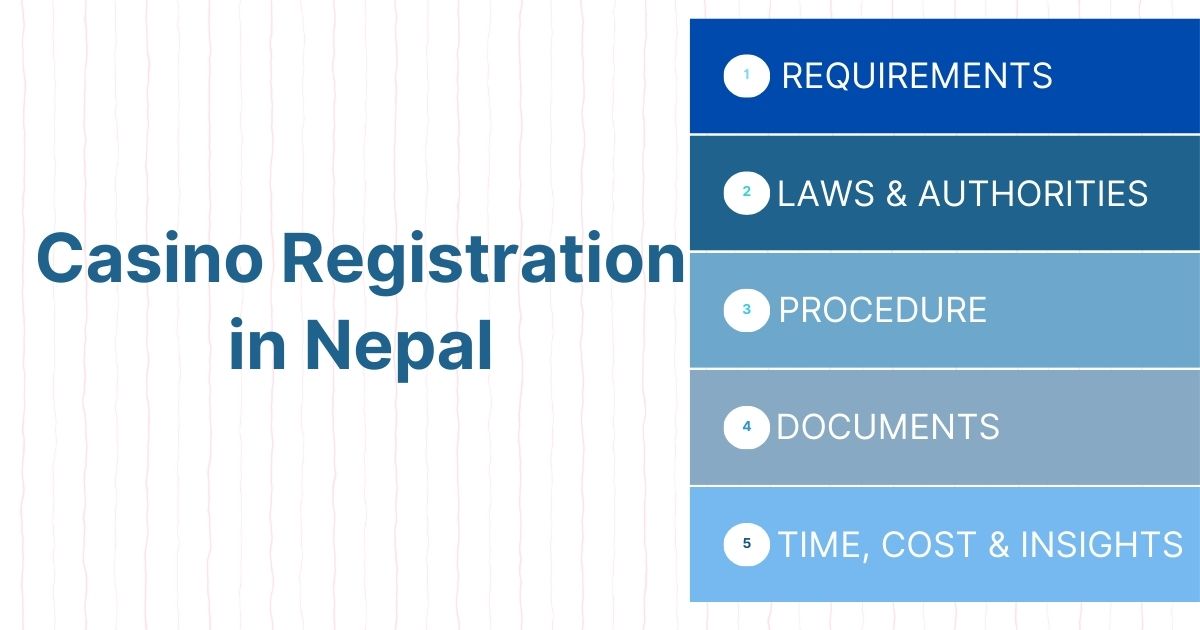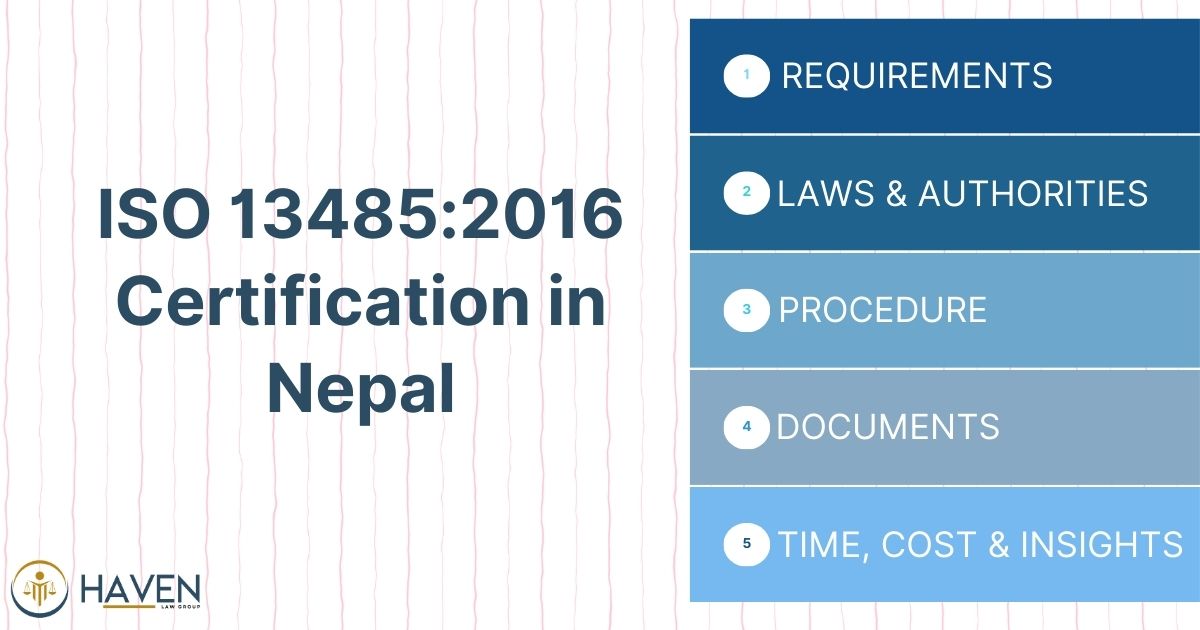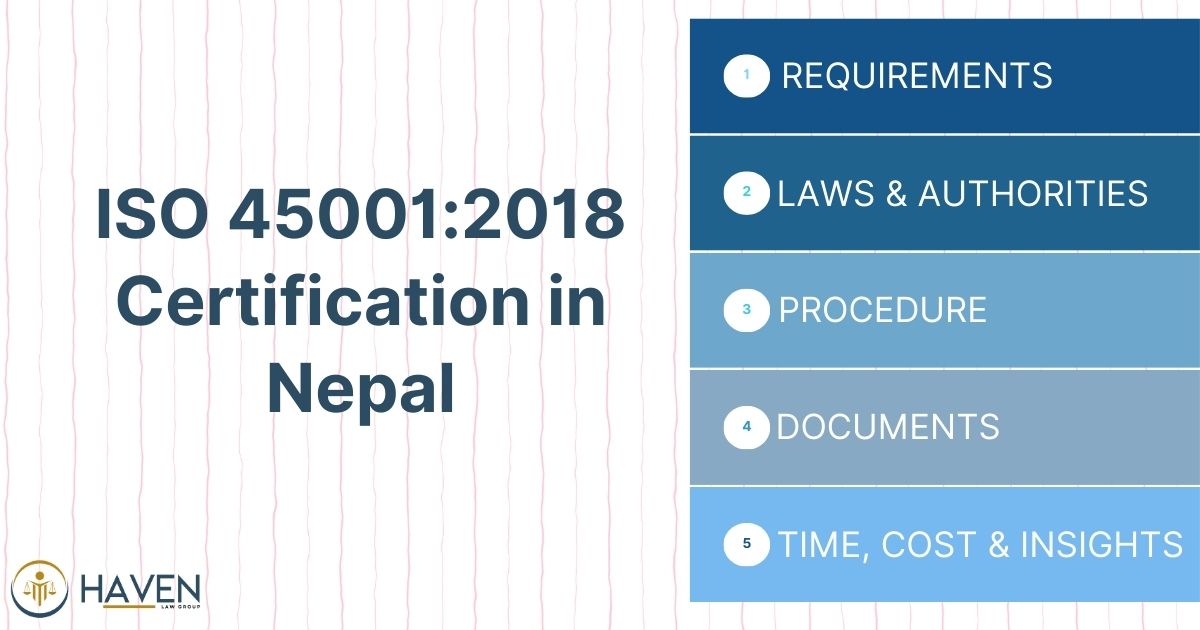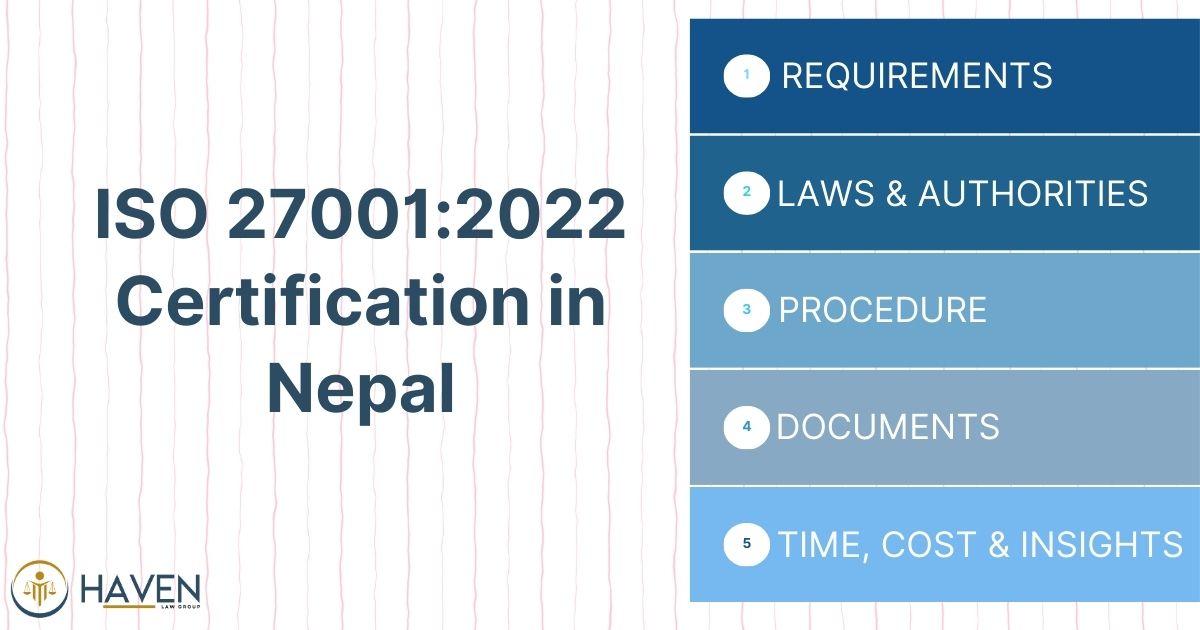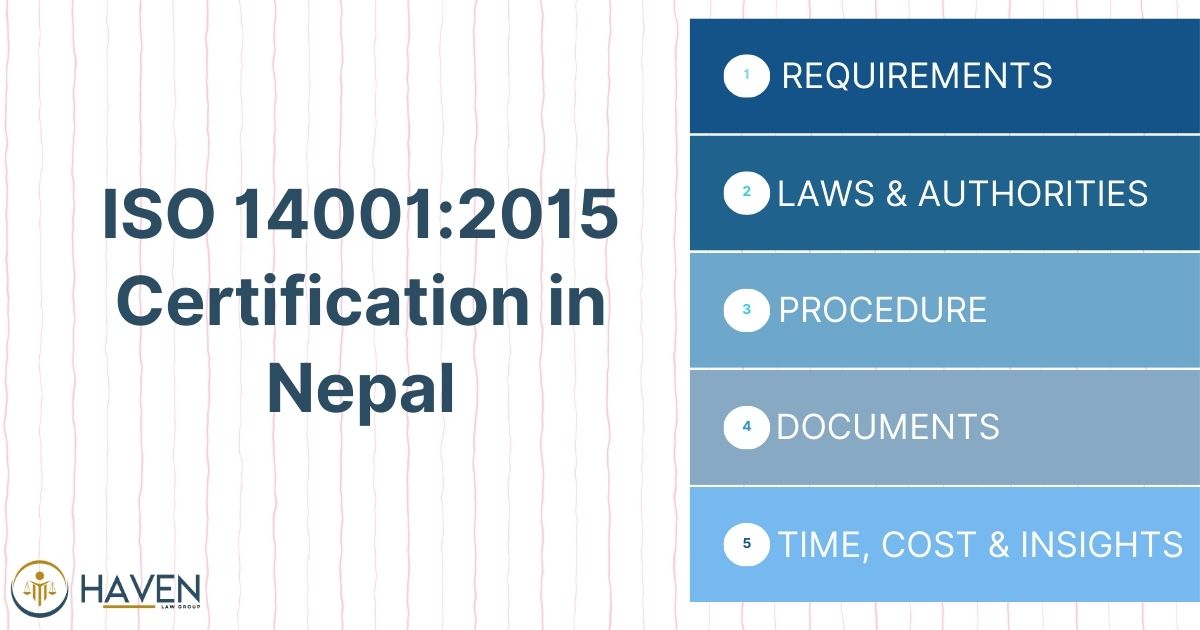What is the divorce process in Nepal?
The divorce process in Nepal involves legally ending a marriage through the court system. Under Nepali law, divorce can be obtained either through mutual consent or by filing a contested case. The process typically begins with filing a divorce petition in the district court where either spouse resides. For mutual divorce, both parties must agree to end the marriage and jointly file the petition.
In contested cases, one spouse files the petition citing grounds like adultery, cruelty, desertion, etc. The court then issues a notice to the other party. Multiple hearings are held where evidence is presented and arguments are made. If reconciliation attempts fail, the court grants the divorce decree after being satisfied that grounds exist.
The entire process, from filing to final decree, can take several months to over a year depending on the complexity of the case and court backlog.
How to file for divorce in Nepal?
To file for divorce in Nepal, the following steps are generally followed:
- Prepare the divorce petition with required details
- Gather supporting documents like marriage certificate
- File the petition at the district court’s registration office
- Pay the court fee for filing the case
- Obtain a case number and first hearing date
- Serve notice to the other spouse through the court
- Attend court hearings as scheduled
- Present evidence and arguments to support the case
- Participate in court-mandated mediation if applicable
- Obtain the final divorce decree from the court
The petition must clearly state the grounds for divorce as per Nepali law. Having a lawyer assist with drafting the petition and navigating court procedures is advisable, though not mandatory. The court may require additional documentation during the proceedings. Proper filing and following due process is essential for the divorce to be legally valid.
What are the steps for mutual divorce?
The steps for obtaining a mutual divorce in Nepal are:
- Both spouses agree to divorce amicably
- Prepare a joint divorce petition
- Collect necessary documents like marriage certificate
- File the joint petition at the district court
- Pay required court fees
- Obtain hearing date from the court
- Both parties appear before the judge
- Court attempts reconciliation if possible
- If reconciliation fails, statements are recorded
- Court reviews petition and evidence
- Divorce decree is issued if judge is satisfied
Mutual divorce is a faster process as both parties are in agreement. The court’s role is mainly to ensure the decision is voluntary and settle any disputes over alimony or child custody. Typically, mutual divorces can be finalized within 3-6 months. Having a lawyer oversee the process is recommended to ensure all legal requirements are met properly.
Can contested divorces be filed in Nepal?
Yes, contested divorces can be filed in Nepal when spouses do not mutually agree to end the marriage. The process for contested divorce involves:
- One spouse files a divorce petition citing legal grounds
- Court issues notice to the other spouse
- Respondent files a written response/objection
- Multiple court hearings are held
- Both parties present evidence and arguments
- Witnesses may be called to testify
- Court attempts reconciliation between parties
- If reconciliation fails, arguments are heard
- Judge reviews all evidence and testimonies
- Final judgment is delivered granting or denying divorce
Grounds for contested divorce in Nepal include adultery, cruelty, desertion for over 3 years, incurable mental illness, impotency, etc. The petitioner must prove the alleged grounds with evidence. Contested divorces typically take longer and are more complex than mutual divorces. Having legal representation is highly advisable in contested cases.
Is court mediation required for divorce?
Court-mandated mediation is not always required for divorce in Nepal, but it is often encouraged and may be ordered by the judge in certain cases. The mediation process typically involves:
- Court appoints a neutral mediator
- Both parties meet with the mediator
- Attempts are made to resolve disputes amicably
- Mediator facilitates communication between spouses
- Issues like property division, alimony, child custody are discussed
- If agreement is reached, it is presented to the court
- Court reviews and approves the mediated settlement
Mediation is more common in contested divorces to help resolve disputes without a lengthy trial. In mutual divorce cases, mediation may not be necessary if spouses have already agreed on all terms. The court has discretion to order mediation if it believes reconciliation is possible or to settle contentious issues. Successful mediation can significantly reduce the time and cost of divorce proceedings.
How long does the divorce process take in Nepal?
The duration of the divorce process in Nepal can vary significantly depending on several factors:
- Mutual divorces typically take 3-6 months
- Contested divorces can last 1-2 years or longer
- Court backlogs may cause additional delays
- Complexity of issues like property division affects timeline
- Willingness of parties to cooperate impacts duration
- Appeals can extend the process by several months
There is no fixed timeframe mandated by law. Simple, uncontested cases can be resolved relatively quickly. However, highly contentious divorces with multiple disputes over assets, alimony, and child custody can drag on for years.
The speed also depends on how efficiently the parties and their lawyers handle the case. Court procedures, including serving notices and scheduling hearings, also add to the timeline. Mediation, if successful, can help expedite the process in some cases.
Are lawyers mandatory for divorce in Nepal?
Lawyers are not legally mandatory for divorce proceedings in Nepal, but their involvement is highly recommended, especially in complex cases. The role of lawyers in divorce includes:
- Providing legal advice on rights and obligations
- Drafting and filing divorce petitions properly
- Representing clients in court hearings
- Gathering and presenting evidence effectively
- Negotiating settlements in property disputes
- Ensuring due process is followed
- Handling appeals if necessary
While individuals can represent themselves in divorce cases, navigating the legal system without expertise can be challenging. Self-representation may lead to mistakes that could negatively impact the outcome. In contested divorces or cases involving significant assets, having a lawyer is particularly important to protect one’s interests. Many people choose to at least consult with a lawyer for guidance, even if not retaining full representation.
What documents are required for divorce?
The following documents are typically required for filing divorce in Nepal:
- Marriage certificate
- Citizenship certificates of both spouses
- Recent photographs of both parties
- Property ownership documents (if applicable)
- Income proof/tax returns (for alimony claims)
- Children’s birth certificates (if any)
- Medical reports (for divorces citing health grounds)
- Police reports (in cases of domestic violence)
- Witness statements (if relevant)
- Any prenuptial agreements
- Bank statements and financial records
- Evidence supporting grounds for divorce
The exact requirements may vary depending on the specific case and court. Additional documents may be requested during the proceedings. It’s important to have all relevant paperwork organized and readily available to avoid delays. Proper documentation strengthens the case and helps the court make informed decisions on various aspects of the divorce.
What happens during a divorce hearing in Nepal?
A typical divorce hearing in Nepal involves the following:
- Case is called by the court clerk
- Both parties or their lawyers appear before the judge
- Judge verifies the presence of all required parties
- Petitioner or their lawyer presents the case
- Respondent or their lawyer presents their side
- Evidence and documents are submitted to the court
- Witnesses may be called to testify if required
- Judge may ask questions to clarify any points
- Lawyers make arguments supporting their clients’ positions
- Judge may attempt reconciliation between parties
- If no reconciliation, next hearing date is set or judgment is reserved
Multiple hearings may be required depending on the case complexity. In mutual divorce cases, hearings are usually shorter and fewer in number. Contested cases often involve more detailed presentations and cross-examinations. The judge’s role is to ensure a fair process and make decisions based on the evidence presented and applicable laws.
Can divorce cases be appealed in Nepal?
Yes, divorce cases can be appealed in Nepal if either party is dissatisfied with the district court’s decision. The appeal process involves:
- Filing an appeal petition within 35 days of the judgment
- Submitting the appeal to the High Court
- Paying the required appeal fees
- Serving notice of appeal to the other party
- Presenting arguments before the appellate court
- High Court reviewing the lower court’s decision
- Appellate court issuing its judgment
Grounds for appeal may include errors in law application, procedural irregularities, or new evidence. The High Court can uphold, modify, or overturn the lower court’s decision. In rare cases, a further appeal to the Supreme Court may be possible on points of law. Appeals can significantly extend the overall divorce process and should be carefully considered. Legal representation is strongly advised for appellate proceedings due to their complexity.
Is separation required before divorce in Nepal?
Legal separation is not a mandatory prerequisite for divorce in Nepal. Couples can directly file for divorce without a formal separation period. However, separation can be relevant in certain contexts:
- Desertion for over 3 years is a ground for divorce
- Separation can be evidence of marriage breakdown
- Some couples opt for informal separation before deciding on divorce
- Court may consider separation period in deciding alimony
- Separation agreements can be basis for divorce terms
While not required, a period of separation can help couples reflect on their decision and potentially reconcile. It can also help in organizing finances and making arrangements for children. In cases where couples have been living separately for an extended period, this fact can be mentioned in the divorce petition to support the case for marriage dissolution.
What is the role of the court in divorce?
The court plays a central role in the divorce process in Nepal, including:
- Accepting and processing divorce petitions
- Issuing notices to involved parties
- Scheduling and conducting hearings
- Attempting reconciliation between spouses
- Evaluating evidence and testimonies
- Ensuring legal procedures are followed
- Making decisions on grounds for divorce
- Determining alimony and child support
- Resolving property division disputes
- Granting custody and visitation rights
- Issuing the final divorce decree
- Enforcing divorce terms and settlements
The court’s primary responsibility is to ensure a fair and legal process while protecting the rights of both parties and any children involved. Judges have the authority to order mediation, appoint experts for property valuation, and make decisions on various aspects of the divorce. The court also maintains official records of the proceedings and the final divorce judgment.
FAQs
How to initiate divorce?
To initiate divorce in Nepal:
- Decide on mutual or contested divorce
- Gather necessary documents
- Draft divorce petition citing grounds
- File petition at district court
- Pay required court fees
- Obtain case number and hearing date
- Serve notice to spouse through court
- Attend initial hearing as scheduled
It’s advisable to consult a lawyer before initiating the process to understand legal implications and ensure proper procedure is followed.
Are online divorces allowed?
Online divorces are not legally recognized in Nepal. The divorce process requires physical presence in court and original document submissions. While some initial information or forms may be available online, the actual filing and proceedings must be conducted in person at the appropriate district court. All hearings, document verifications, and final decree issuance are done through traditional court processes. The Nepali legal system has not yet adopted provisions for fully online divorce proceedings.
Can divorce be withdrawn?
Yes, divorce petitions can be withdrawn in Nepal under certain circumstances:
- Petitioner can withdraw before court issues notice
- Both parties can jointly request withdrawal
- Court permission is required for withdrawal
- Reasons for withdrawal must be explained
- Court may impose conditions for withdrawal
- New petition can be filed later if needed
Withdrawal is more straightforward in the early stages of the process. Once proceedings have advanced significantly, the court may be less inclined to allow withdrawal, especially in contested cases. If reconciliation occurs, it’s important to formally withdraw the case to close the legal proceedings.
Does consent affect speed?
Yes, mutual consent significantly affects the speed of divorce proceedings in Nepal:
- Mutual divorces are generally faster (3-6 months)
- Contested divorces take longer (1-2 years or more)
- Consent simplifies property division and alimony decisions
- Agreed terms reduce need for multiple hearings
- Court processes mutual divorces more quickly
- Lack of disputes minimizes delays and appeals
When both parties agree on divorce terms, the court’s role is mainly to verify the consent is genuine and settle any remaining issues. This streamlined process results in quicker resolution compared to contested cases where each point may be disputed.
Can both parties skip court?
In Nepal, it is generally not possible for both parties to completely skip court appearances in divorce cases. The legal process requires:
- At least one mandatory appearance for both spouses
- Verification of consent in mutual divorces
- Personal statements recorded by the judge
- Presence for final decree issuance
While some hearings may be attended by lawyers on behalf of clients, key appearances are mandatory. The court needs to ensure the divorce decision is voluntary and undisputed. In exceptional circumstances, like one party being abroad, the court may allow alternatives like video conferencing, but this is at the judge’s discretion and not standard practice.
What are the legal grounds for divorce in Nepal?
Legal grounds for divorce in Nepal include adultery, cruelty, desertion, mental illness, impotence, separate living for 3+ years, and conversion to another religion.
How can I file for divorce in Nepal?
File a divorce petition at the district court where you or your spouse resides. Provide required documents and pay court fees. Attend hearings as scheduled.
What documents are required for filing a divorce in Nepal?
Required documents typically include marriage certificate, citizenship certificates, property details, income proof, and any evidence supporting divorce grounds. Specific requirements may vary by court.
How long does the divorce process take in Nepal?
The divorce process in Nepal usually takes 6-18 months, depending on case complexity, court backlog, and whether it’s contested or uncontested.
Is mutual consent divorce possible in Nepal?
Yes, mutual consent divorce is possible in Nepal. Spouses can jointly petition the court, agreeing on all terms. This often results in a quicker process.
Can a wife file for divorce without the husband’s consent in Nepal?
Yes, a wife can file for divorce without her husband’s consent in Nepal, provided she has valid grounds as per the law.
Is property divided equally in divorce in Nepal?
Property division in Nepali divorces considers factors like contribution, income, and child custody. Equal division is not mandatory but may occur in some cases.
Is alimony or financial support mandatory after divorce in Nepal?
Alimony is not automatically granted in Nepal. The court may award it based on factors like financial need, earning capacity, and marriage duration.
Can foreign nationals get divorced in Nepal?
Foreign nationals can get divorced in Nepal if their marriage was registered in Nepal or if they meet residency requirements set by Nepali law.
Can a divorce decision be appealed in Nepal?
Yes, divorce decisions can be appealed to higher courts in Nepal within 35 days of the lower court’s verdict, if legal grounds exist.

